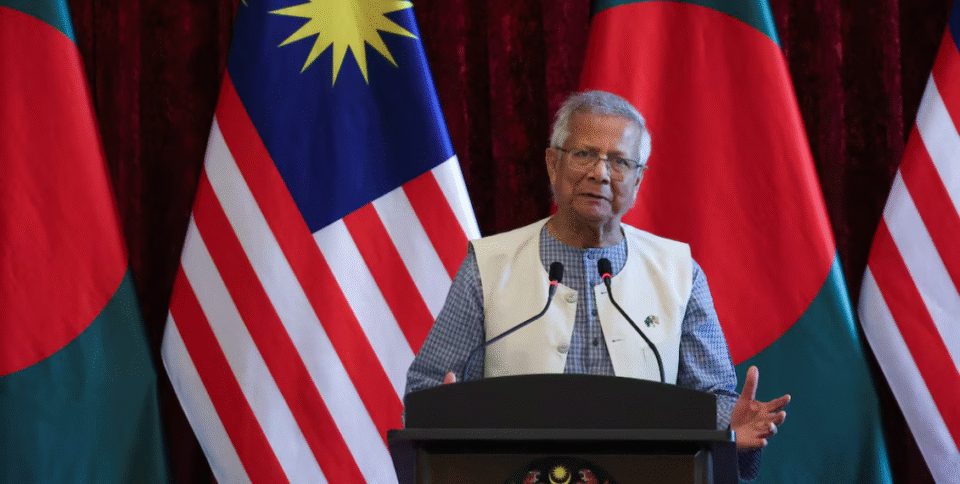Dhaka, August 24, 2025: Bangladesh’s interim leader Muhammad Yunus has issued a stark warning that his country can no longer shoulder the overwhelming burden of hosting 1.5 million Rohingya refugees, urging the international community to immediately work on a practical roadmap for their voluntary and dignified return to Myanmar.
“Their right to return to their own home and homeland has to be secured,” Yunus said, stressing that “the time is for action right now.” He called on donors to reverse declining humanitarian aid contributions, warning that without fresh support, essential life-saving programmes in Cox’s Bazar and other refugee camps could collapse.
Yunus outlined a multi-pronged proposal that includes an immediate end to violence in Myanmar, creation of dialogue platforms to reduce tensions between ethnic groups, and greater involvement from ASEAN and regional powers to restore stability. He urged governments to “stand firm against Myanmar’s heinous crime of ethnic cleansing” and reconsider their relations with the country’s military regime.
The interim Bangladeshi leader also called for renewed momentum in accountability efforts at the International Court of Justice (ICJ) and International Criminal Court (ICC), insisting that justice is central to ending the Rohingya genocide and ensuring safe return.
Nearly 800,000 Rohingya fled to Bangladesh in August 2017 following a brutal military crackdown that the United Nations has classified as genocide. Thousands more have continued to cross the border since, worsening Bangladesh’s humanitarian and economic pressures.
“The impact on our economy, resources, environment, ecosystem, society, and governance has been huge. I thank our host community and the people of Bangladesh for their wholehearted support and enormous sacrifices,” Yunus said.
Refugees themselves echoed these calls. Demonstrators across camps in Cox’s Bazar demanded justice for the 2017 atrocities and stressed their desire to return home, despite ongoing conflict in Rakhine state.
On Monday, more than a dozen international human rights organizations issued a joint statement urging urgent accountability for genocide and atrocities committed against the Rohingya.
“Eight years on from the start of the Myanmar military’s genocidal attacks against Rohingya, not a single person has been held criminally responsible. This is a deep stain on the world’s conscience,” said Patrick Phongsathorn, Senior Advocate at Fortify Rights.
Rights groups demanded the UN Security Council refer Myanmar’s case to the ICC, while calling on member states to explore “every possible avenue to pursue justice.”
The UN’s World Food Programme (WFP) recently warned of worsening conditions, with 57 percent of families in central Rakhine unable to meet basic food needs. Inside Bangladeshi refugee camps, families survive on rations worth only $12 a month.
In 2022, the ICJ advanced a genocide case filed by The Gambia, while in 2024 the ICC prosecutor requested an international arrest warrant for Myanmar’s military ruler, Senior General Min Aung Hlaing, on charges of persecution of the Rohingya.
Despite mounting legal pressure, the Myanmar military has continued its campaign of violence, making prospects for safe repatriation uncertain.
A high-level conference in Cox’s Bazar is taking place ahead of a UN summit in New York on September 30, where Bangladesh hopes to galvanize global support.
For now, Yunus insists that Bangladesh cannot face this crisis alone. “We need the world to act—not tomorrow, but today,” he said.

